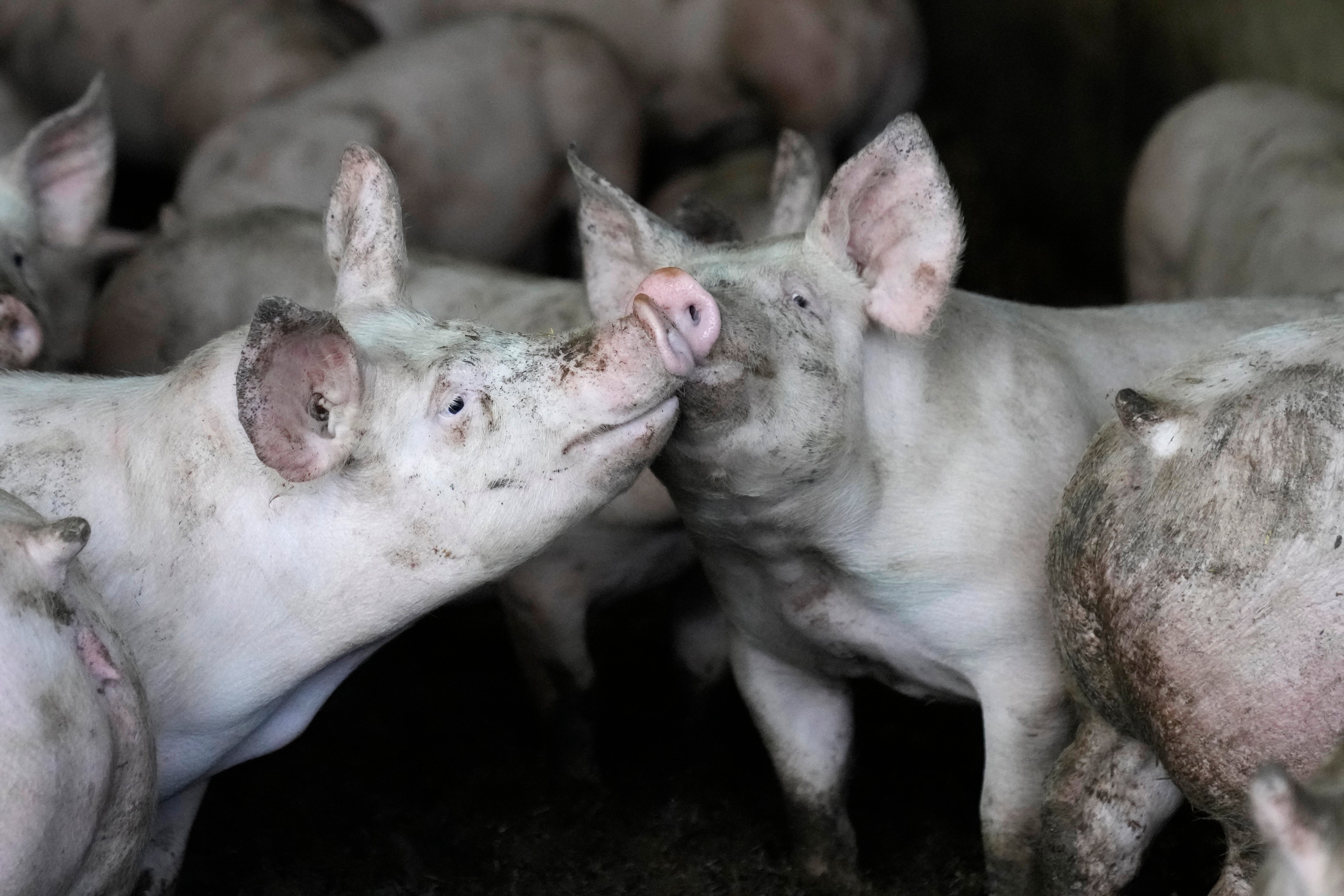What is African swine fever?
Vets warn further delay to introduction of new post-Brexit border checks increases risk of UK livestock being exposed to often deadly porcine disease

Your support helps us to tell the story
From reproductive rights to climate change to Big Tech, The Independent is on the ground when the story is developing. Whether it's investigating the financials of Elon Musk's pro-Trump PAC or producing our latest documentary, 'The A Word', which shines a light on the American women fighting for reproductive rights, we know how important it is to parse out the facts from the messaging.
At such a critical moment in US history, we need reporters on the ground. Your donation allows us to keep sending journalists to speak to both sides of the story.
The Independent is trusted by Americans across the entire political spectrum. And unlike many other quality news outlets, we choose not to lock Americans out of our reporting and analysis with paywalls. We believe quality journalism should be available to everyone, paid for by those who can afford it.
Your support makes all the difference.The British Veterinary Association (BVA) has warned that further delays to new customs checks on the import of animal and plant products into the UK threatens to “open the door even further to the potential incursion of African swine fever” - which it said is already “spreading rapidly” in Europe.
The UK has been shut out of the EU’s biosecurity and assurance systems since Brexit and the new controls, promised for July, are essential to providing a “first line of defence” against viruses, the organisation said.
Already repeatedly postponed, No 10 is reportedly currently rethinking the checks over fears that they could further add to the cost of living crisis by ramping up the expense of cross-Channel trade and deterring business with yet more Brexit-related red tape, leading to further shortages on supermarket shelves and even higher price hikes.
“It would be deeply misguided to push back the need for these vital checks even further and in so doing weaken this layer of protection for both animal and public health,” James Russell, the BVA’s senior vice president, told ministers, warning that doing so would “wreak havoc”.
So what is the African swine fever and why is it of such particular concern?
African swine fever is a highly infectious disease that affects pigs and wild boars and is typically contracted by their eating contaminated meat, coming into contact with other animals carrying the virus or their faeces or by encountering anything else bearing it, from clothing to vehicles.
It does not affect people but they can inadvertently pass it on to pigs.
Swine fever is distinct from swine flu, although its symptoms are similar.
The four main symptoms farmers might spot in pigs indicating that they have contracted it, according to the Department for Environment, Food and Rural Affairs (Defra), are: fever, loss of appetite, lack of energy and sudden death with no prior warning that anything was wrong.
Secondary symptoms include: vomiting, diarrhoea, red or dark skin around the ears and snout, discharges from the eyes or nostrils, laboured breathing and coughing, miscarriages in pregnant sows, general weakness and unsteady gait.
There are different strains of African swine fever ranging from mild to severe, in which case it is likely to prove fatal.
Farmers are advised to practice strict biosecurity measures to prevent the spread of swine fever on their premises by wearing protective clothing and boots, disinfecting vehicles and equipment regularly and disposing of leftover food waste out of reach from pigs.
Anyone who suspects an outbreak is underway must report it immediately via the Defra Rural Services Helpline on 03000 200 301.
While the UK is currently free of the disease, cases in domestic pigs in Europe have soared over the last 12 months and been reported in Bulgaria, Germany, Latvia, Moldova, North Macedonia, Poland, Romania, Russia, Serbia, Slovakia and Ukraine, hence the BVA’s concern about its accidental introduction to Britain via imported pork products without safe border controls in place.
Cases in wild boar have meanwhile been reported in Bulgaria, Estonia, Germany, Hungary, Latvia, Lithuania, Poland, Romania, Russia, Serbia, Slovakia, Ukraine and Italy over the course of the last year.



Join our commenting forum
Join thought-provoking conversations, follow other Independent readers and see their replies
Comments